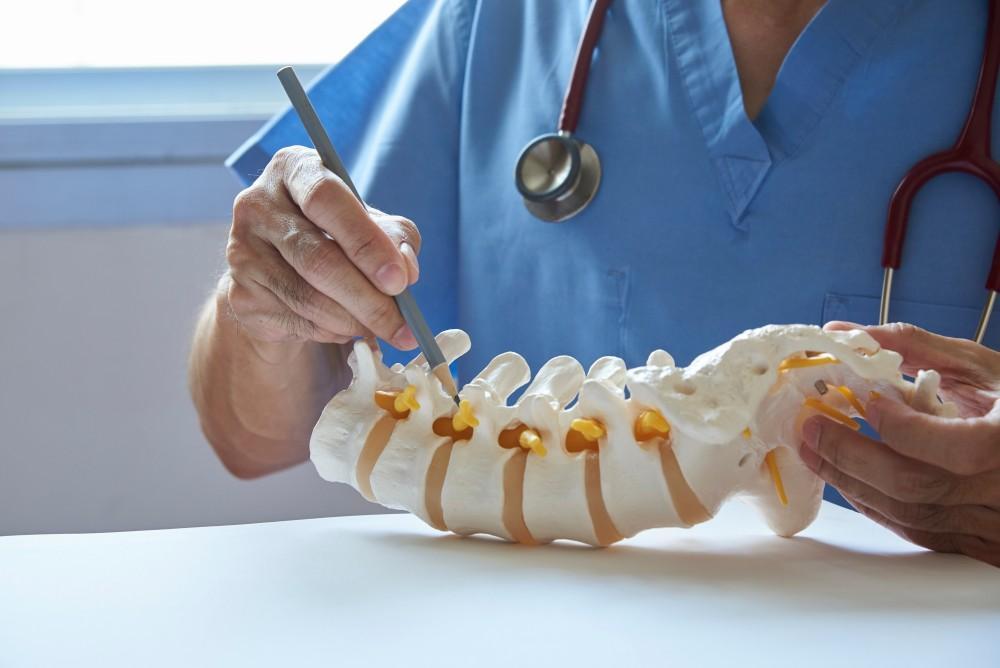
Signs that You Have a Pinched Nerve in Your Back

Pinched nerves, also known as impinged or compressed nerves, and they’re very common. Some 85 out of 100,000 US adults develop the condition every year. The “pinch” occurs when a nearby structure applies too much pressure on a nerve or nerve root, causing pain, weakness, tingling, and numbness along that nerve’s path. Two common sources of spinal impingement include bone spurs on vertebrae and the inner material from a herniated disc.
Anyone can develop a pinched nerve at any age, but we see it most often in people over 50 because of age-related spinal degeneration.
At Vertrae®, board-certified neurosurgeon Dr. Kamal R. Woods and his staff understand how limiting and uncomfortable a pinched nerve can be, which is why they offer several effective treatments to address it. What are the signs of a pinched nerve in your back? Keep reading for our expert’s answer.
Problems caused by pinched nerves
Most people associate pinched nerves with spinal conditions, but they don’t have to be (think carpal tunnel syndrome). When they occur in the spine, they tend to pop up in the lumbar (lower back) spine, since this area experiences a lot of motion. Here, pressure on a spinal nerve root occurs as the nerve exits the spinal column headed for the rest of the body. The symptoms can travel along the entire length of the nerve, a condition called radiculopathy.
The best-known example of lumbar radiculopathy, and the most common, is sciatica. The sciatic nerve exits the spinal column in a foramun (opening) between the L4-L5 and/or L5-S1 vertebrae in the lower back. If the opening is too small, or if something within the spinal canal pushes on the nerve’s root, it sends sharp, stabbing pain through the buttocks and down the outside of your leg into your foot.
The impingement can come from an acute spinal injury or from an age-related condition such as osteoarthritis or degenerative disc disease that narrows the spinal canal (stenosis). Degenerative conditions also create inflammation, causing localized swelling and pain. The pain you experience may come from spinal nerve impingement and/or inflammation.
Signs of a pinched nerve in your back
A pinched nerve creates the same signs and symptoms no matter where it’s located. These include:
- Pain: sharp, aching, or burning
- Pain that travels along the nerve’s path
- Numbness in the body part the nerve supplies
- Muscle weakness in the body part the nerve supplies
- The feeling an extremity has “fallen asleep”
- “Pins and needles” (paresthesia) that travels
If the pinched nerve is in your spine, your symptoms may be worse when you lie down, as the position puts added pressure on the affected nerve.
Treating a pinched nerve in your back
Most cases of pinched nerves resolve on their own in about 4-6 weeks, but it really depends on the underlying problem. You can start with rest and over-the-counter anti-inflammatory medications like ibuprofen or naproxen. If those don’t help within a few days, you need to come into Vertrae® for an evaluation. If you get an early diagnosis and effective treatment, where Dr. Woods relieves the source of the compression, your nerve’s function will return to normal.
However, if you decide to wait for weeks on end to see if the pain will resolve itself, it can lead to the condition becoming chronic, and the damage to the nerve may become permanent. That’s why involving a doctor in the process is usually the correct way to go.
Dr. Woods always starts with conservative treatments. He might suggest steroid injections to calm the inflammation, and he may recommend physical therapy, which uses targeted stretches and exercise to relieve the discomfort. However, if these don’t prove effective, he has extensive experience performing a wide range of spinal surgeries, which includes minimally invasive and robotic options. He discusses all the possibilities with you at your evaluation.
If you’ve got pain and weakness traveling into your lower body, chances are good you have a pinched nerve in your lumbar spine, and you need medical attention. Vertrae® can help. To schedule an evaluation with Dr. Woods, call our office at 844-255-2225, or book online with us today.
You Might Also Enjoy...


4 Benefits of Outpatient Spine Surgery

Am I a Candidate for Kyphoplasty?

Pulled Muscle vs. Pinched Nerve: What's the Difference?

4 Subtle Signs of Sciatica

